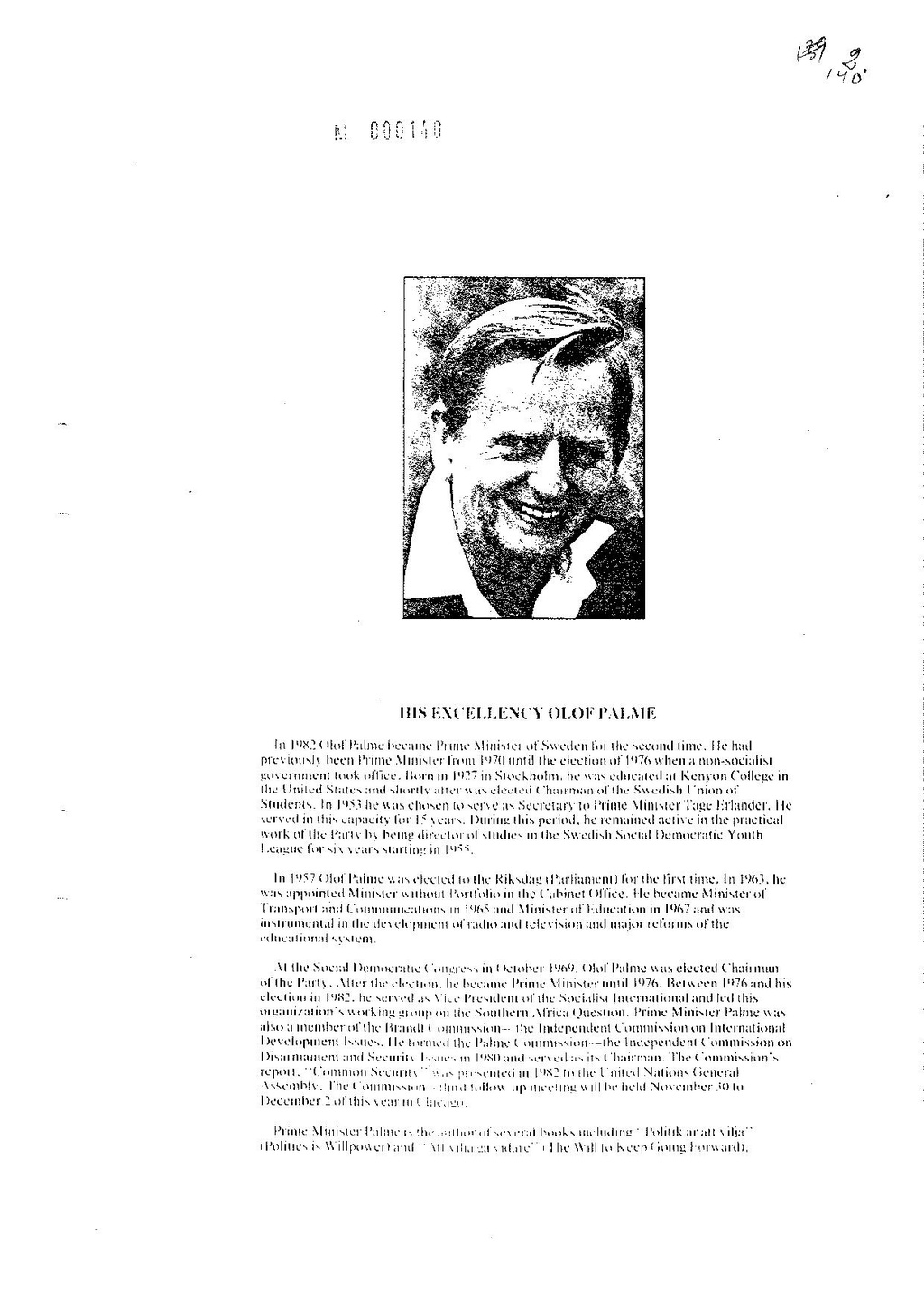HIS EXCELLENCY OLOF PALME
In 1982 Olof Palme became Prime Minister of Sweden for the second time. He had previously been Prime Minister from 1970 until the election of 1976 when a non-socialist government took office. Born in 1927 in Stockholm, he was educated at Kenyon College in the United States and shortly after was elected Chairman of the Swedish Union of Students. In 1953 he was chosen to serve as Secretary to Prime Minister Tage Erlander. He served in this capacity for 15 years. During this period, he remained active in the practical work of the Party by being director of studies in the Swedish Social Democratic Youth League for six years starting in 1955,
In 1957 Olof Palme was elected to the Riksdag (Parliament) for the first time. In 1963, he was appointed Minister without Portfolio in the Cabinet Office. He became Minister of Transport and Communications in 1965 and Minister of Education in 1967 and was instrumental in the development of radio and television and major reforms of the educational system.
At the Social Democratic Congress in October 1969, Olof Palme was elected Chairman of the Party. After the election, he became Prime Minister until 1976. Between 1976 and his election in 1982. he served as Vice President of the Socialist International and led this organization's working group on the Southern Africa Question. Prime Minister Palme was also a member of the Brandt Commission-the Independent Commission on International Development Issues. He formed the Palme Commission-the Independent Commission on Disarmament and Security Issues in 1980 and served as its Chairman. The Commission's report, "Common Security was presented in 1982 to the United Nations General Assembly. The Commission is third follow-up meeting will be held November 30 to December 2 of this year in Chicago,
Prime Minister Palme is the author of several books including "Politik ar att vilja” + Politics is Willpower) and ¨* Att vila ga vidare” (The Will to Keep Going Forward).
140'
